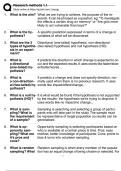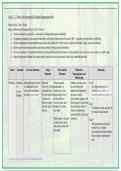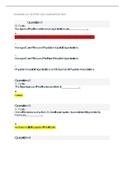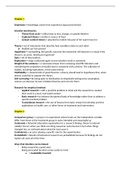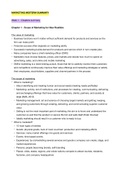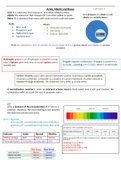LESSON 5 NOTES
[English for Beginners]
, Advice, Obligations, and Permission
Advice
Telling people what you think is a good idea
‘should’
Used to give recommendations
e.g. “You should be careful in that part of town.”
“People who are overweight shouldn’t eat fatty foods.”
“Should I visit the Colosseum when I visit Rome?”
‘must’
Used to give strong advice
e.g. “You must go for a walk with the dog at least once a day.”
“You must practise more if you want to run a marathon.”
“You mustn’t tell Pablo about the surprise party.”
Obligations
Things we are bound or obliged to do
‘must’
Personal opinion of what is necessary or written rules
e.g. “I must go now.”
“I must remember to get a present for Fatima.”
“Passengers must fasten their seat belts.”
‘have to’
What somebody in authority says is necessary (the law, orders from management, etc.)
e.g. “I have to go now.”
“He has to get 50% to pass the exam.”
“Do I have to wear a uniform to school?”
Negatives
When made negative, ‘mustn’t’ becomes the stronger modal
e.g. “You mustn’t forget…” (don’t forget – you have no choice)
“You don’t have to go…” (no obligation – you have a choice)
“In a non-smoking area, you mustn’t smoke, but in a smoking area you don’t have to
smoke.”
, Permission
Allowing someone to do something
‘am allowed to’
Used to express permission to do something
e.g. “I am allowed to have friends over to my house.”
“The dog isn’t allowed to come into the house.”
“Are you allowed to answer phone calls in school?”
‘can’
Used to ask for permission or express it informally
e.g. “Can I go to William’s party?”
“I can’t have friends over on weekdays.”
“Can you answer phone calls in school?”
**These modals have many meanings in English depending on the context. But for
now we only care about these.
Telephone Manner
Tips
Answer calls quickly
Have confidence
Be polite and professional
Practice as much as possible
Intonation is important
Use contractions
Use quantifiers to sound more polite
Use the modals to make your speech more formal
Useful Verbs
To dial = enter the number
To ring = call
To pick up = answer
To hang up = end a call
To be busy = already on a call
To call back = call someone who called you first
To charge = to recharge your phone battery
To text = send an SMS
To skype = call someone on skype
To vibrate = shake (usually when on silent mode)

